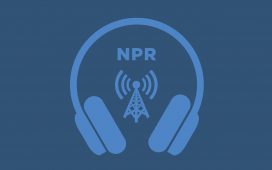Donald Trump has scheduled a televised town hall event to be broadcast at the same time on Thursday evening as a separate town hall featuring rival Joe Biden, creating a ratings duel and a split-screen spectacle for a divided country on the night that was supposed to be the second presidential debate.
The dueling events came about after Trump backed out of a virtual debate with Biden that was proposed by the presidential commission on debates to replace the normal match-up of the two men live on a stage together, after Trump tested positive for coronavirus.
“I’m not gonna waste my time on a virtual debate,” Trump said at the time – but campaign insiders feared he had squandered one of few remaining opportunities to draw a positive contrast with his opponent and right his listing campaign.
Trump may now have gained a fresh chance to do that by arranging to take questions live from Florida voters in Miami, with the event to be broadcast on the NBC network as well as two sister cable networks, CNBC and MSNBC, and hosted by journalist Savannah Guthrie.
The Biden event, hosted by George Stephanopoulos, will take place in Philadelphia and air on the ABC network but not on cable. Both events were scheduled to start at 8pm ET.
NBC told viewers on Wednesday that health officials had determined it safe for producers and other network staff to interact with Trump at the event – and safe for attending voters. The network issued a statement from Clifford Lane, a clinical director at the National Institutes of Health, saying Trump was “not shedding infectious virus”.
The 2020 presidential debate schedule was thrown into upheaval by Trump’s Covid-19 diagnosis, which was announced on 2 October and followed by a three-night hospital stay by the president.
Federal health guidelines call for a two-week quarantine for known Covid cases, leading the debate commission to propose an online event instead. Trump, 74, and Biden, 77, are both in high-risk health categories.
Trump refused. “That’s not what debating is all about. You sit behind a computer and do a debate?” he said. “It’s ridiculous.”
With Trump trailing badly in polling averages, political analysts say he needs to find a way to shake up the race to have a shot at winning – and, with millions of early votes already cast, few undecided voters remaining and Biden’s personal approval rating riding high, time was short for Trump to make such a move.
Spurred by those realities, Trump has returned to the campaign trail, with plans to host rallies this week in Iowa, North Carolina and Florida. Trump won all three states handily in 2016 but now finds himself playing defense in territory his campaign had hoped would be sewn up by now.
In a dire sign for Trump campaign finances, the campaign canceled $4.5m in ad buys in key battleground states last month – even as the Biden campaign spent $65m on ads in 12 states and announced expanded advertising on Google and Facebook.
Biden, meanwhile, held multiple rallies in Ohio this week, signaling his campaign’s belief that the state is in play in 2020 after Trump defeated Hillary Clinton there in 2016 by eight points. Polling averages show Biden holding a narrow lead in the state.
While counter-programming Biden on Thursday night would avoid a situation where the former vice-president had the political arena to himself for a night, the dueling town hall format does not create obvious opportunities for Trump to rebut Biden in real time.
Potentially compounding Trump’s difficulties is the fact that the town hall format, which draws Trump out of his bubble of comfortable campaign rallies and adulatory Fox News interviews, is not one Trump has excelled at.
A Trump outing at a town hall in Philadelphia last month found the president twisting in the spotlight, making statements that attendees later called obvious lies, and even interrupting questioners.
The dueling town halls came about through a series of refusals, taunts, threats and reversals by Trump and his campaign. First the Trump campaign challenged Biden to an extra in-person debate, which the Biden camp refused, and then Trump attempted to revive an in-person debate on Thursday, also refused.
Already low, Trump’s poll numbers fell after the candidates’ first – and so far only –debate on 30 September, in which Trump interrupted Biden so much the Democrat told the president to “shut up, man”.
While Democrats remained cautious about polling reflecting a Biden lead, the dimensions of that apparent lead sparked whispers that perhaps 2020 would not be a repeat of 2016, when a victory by Clinton in the popular vote was overridden by Trump’s victory in the electoral college.
To differentiate between the two election cycles, political analysts point not only to changes that state-level pollsters have made since 2016 to avoid a recurring blind spot, but also to two factors – Biden’s strong favorability rating and the low proportion of undecided voters.
Unlike Clinton, Biden has watched his average favorability rating climb above 50% and stay there over the course of the election, while Trump hovers at around 43%. Elsewhere polling indicates that there are about half as many undecided, likely voters in 2020 as there were in 2016.
An unusual stability in the 2020 race is visible in graphs of polling averages showing parallel lines going back eight months separated by five to 10 points – with Biden on top.







